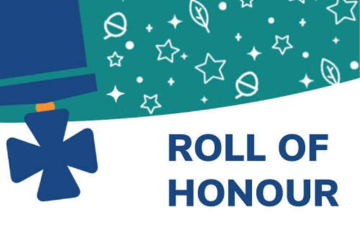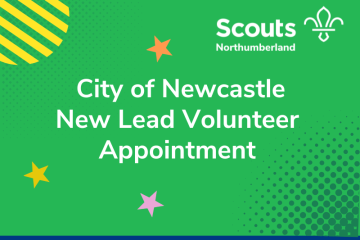Volunteers told us they need more volunteers and we listened. Together, we’ve come up with a plan.
To give more young people skills for life, we need more volunteers.
In 2018, we agreed our Skills for Life strategy. Now we want to make volunteering with Scouts easier and more fun, so we can attract and retain more volunteers to help more young people gain skills for life.
Since 2018, we’ve spoken to more than 10,000 people inside and outside of our movement. We’ve consulted widely to plan for inclusive growth, which means leaving no communities behind.
People told us we need to be more welcoming and make volunteering feel positive, so it’s not like more work. We need our learning to be engaging and create useful digital tools to help get things done.
But what does this mean? Why would changes to how we welcome, learn and volunteer help us reach and retain more volunteers?
Here are some facts about our volunteers and how they volunteer compared with national trends
- Our volunteers give us 15 hours a month on average – almost twice as much as the wider volunteering population.
- 86% of them volunteer at least once a week – double the amount of the wider volunteering population.
- On average, our volunteers are involved in Scouts for 15 years – wider volunteering trends show three out of four people move in and out of volunteering and don’t volunteer consistently over time.
- Only 2% of our volunteers are Black, Asian or minority ethnic, compared with the national average of 14%.
We asked non-volunteers what would make them want to volunteer with Scouts. Here are some of the results
- 66% would like to try it before committing to anything.
- 64% would want to volunteer as part of a team.
- 29% would be put off if they had to volunteer at the same time each week.
Currently, volunteering at Scouts doesn’t always suit how people want to volunteer. They want to volunteer flexibly, by committing the time they have and being part of a team.
We’ve done lots of research, which highlighted our need to be more approachable and welcoming. Members helped us decide how we can do this and part of this included moving on from some of our historical language.

Even though it’s an emotive topic for some people, we passionately believe using more modern and relevant language will help us recruit more volunteers and prepare our movement for the future
That’s why we’re focusing on these key areas to help grow our movement:
- A warmer welcome for all.
- More engaging learning.
- Positive volunteering everyday.
Each key focus area will be supported by easy-to-use digital tools.
We believe changing these key focus areas will help us recruit 10,000 more volunteers.
Over the past year, volunteers have tested and designed potential solutions to volunteering with Scouts in the future. There’ve been more than 40,000 visits to our Testing hub, where we’ve outlined the changes and invited feedback.
Let’s delve into each of these areas in more detail.
A warmer welcome for all
Here are some criticisms volunteers told us about our current welcome process
- Intimidating and inefficient.
- Manual and time-consuming administration – taking about four hours per new volunteer.
- Reliant on isolated networks to recruit.
This is backed up by feedback from volunteers, like this one:
‘The appointments panel is usually made up of the old guard […] who sit there and talk about their day. This enthusiastic new person gets completely put off straight away.’
Starting in 2023, we’ll be changing the way we welcome and recruit new volunteers.
Here’s why we’ll be moving away from the appointments panel
- Volunteers are welcomed, valued and at ease from day one.
- There’s a welcome conversation when you start volunteering.
- New volunteers will have a buddy throughout their induction.
- New volunteers feel empowered by a self-service joining application, using our digital tools to send out and collect references.
- There’ll be more tools to recruit locally.
A new volunteer might say:
‘I’ve been thoroughly introduced to my new role and now I can hit the ground running.’
Here’s what volunteers said when we asked them what they thought of these changes
- They said making recruiting simpler and consistent across Scouts will benefit them.
- Expressed concerns about being digital-first. They’re worried it’ll exclude potential new volunteers who aren’t digitally-minded and make us appear less ‘human’ when reaching out.
More engaging learning
Here are some of the criticisms volunteers told us about learning at Scouts
- Time-consuming to do and validate.
- Hard work to track and manage.
- An off-putting digital experience.
This is backed up by feedback from volunteers, like this one:
‘I completed my training over a year ago, but the trainer has no time to validate me. I’m really let down.’
Here’s why we’ll introduce changes to learning starting in 2023
- Learning is personalised for your own volunteering.
- It’s smooth, transparent and consistent to recognise your existing skills.
- Showing what you’ve learned is naturally built into the learning.
- It’s easier to track who’s done what learning, so everyone is up to date on the essentials. This’ll keep people safe and help deliver great Scouts experiences.
- It’s digital-first (but not digital-only), bite-sized and in one place.
- The Wood Badge is optional and everyone can earn it.
A new volunteer might then say:
‘The learning I’ve completed so far has been so helpful and easy to absorb – I really enjoyed it.’
Here’s what volunteers thought of these changes
- They’re in favour of the changes to volunteer learning and feel positive about how the changes will affect Scouts.
- The majority of volunteers are excited about the learning and Wood Badge changes, while pointing out that transitioning might be difficult and it’s important to get it right.
- Generally speaking, people are excited. There’s just understandable anxiety about how we get things right and make sure it works in practice.
Positive volunteering
Here are some of the problems volunteers described with volunteering at Scouts
- Fixed roles, making it hard to volunteer flexibly.
- Unclear expectations of volunteers.
- A small number of people with lots of responsibility (and stress).
- Times where volunteering feels like work.
This is backed up by feedback from volunteers, like this one:
‘We don’t feel very supported by the District. It scares me, because I often worry that I’m gonna melt and say, ‘I can’t do this anymore.’
Here’s why we’ll be changing the way we volunteer together starting in 2023
- People can volunteer based on their skills, interests and availability, rather than what’s in their role description. Moving from roles to teams means we’ll help make flexible volunteering a reality, as we know this doesn’t happen everywhere yet.
- There’re clear expectations about how we’ll support each other.
- Our role and team titles are clear to people inside and outside of Scouts.
And a new volunteer might say:
‘I get lots of support in a safe, open and honest way. I feel respected and seen.’
Here’s what volunteers said when we asked what they thought of these changes
- They said it’s great for expectations to be clear and consistent, especially with a statement about what Scouts will do for each volunteer, what we ask our volunteers to do and what we’ll do together.
- Programme delivery and volunteer managers said it’s important to include ‘fun’.
- Volunteers felt team-based volunteering may help with workload and with attracting new volunteers.
- They think getting some people to adapt will be a challenge.
You can read more of the learnings on the Testing hub.
We’ve also been working with hundreds of volunteers. They’re helping us design our digital tools for supporting these changes.
Thank you to everyone who’s shared their feedback. We’ve considered everything, and it’s helped us shape our improvements to our volunteer experience.
For instance, we’ve updated our Volunteer Culture Statement based on feedback. We’ve shortened it, simplified the language, and emphasised the ‘fun’ nature of volunteering. We’re also developing digital skills support to help people transition to our digital-first (but not digital-only) approach.
To get ready for the first phase of change, we’ve nearly finished the solutions for local implementation next year. This’ll be the foundation for more improvements up until 2025, particularly in terms of more engaging learning.
There’ll be opportunities to try out our new digital tools soon. We’ll let you know in your membership email, so keep an eye out if you want to get involved.
For now, please continue as you are. These changes won’t take place until mid-2023, unless you’re one of the ten Counties/Areas/Regions trying things first in February 2023.
Volunteers will keep shaping the solutions as they roll out in 2023, and we’ll keep refining things based on your feedback.



0 Comments